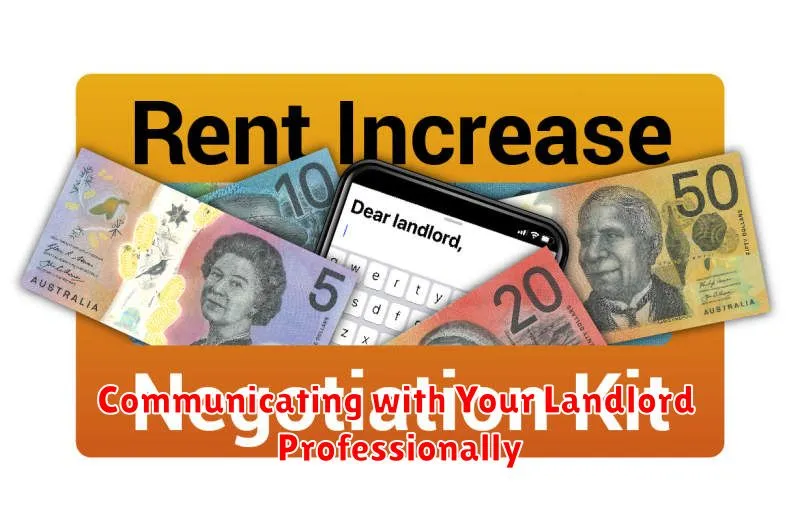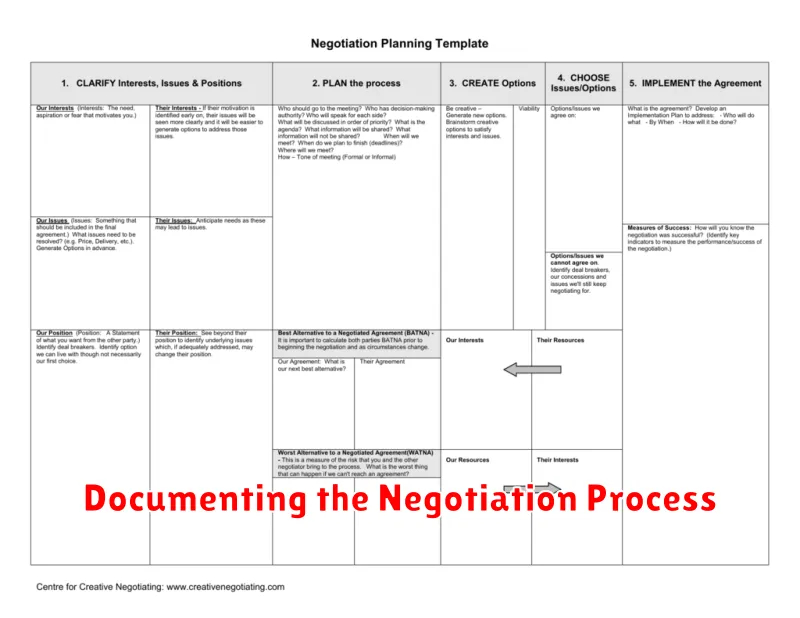Are you facing a rental increase when your lease is up for renewal? Don’t despair! You don’t have to accept the first number your landlord throws at you. With some strategic planning and a little negotiation, you can potentially secure a lower rent for your apartment. This guide will equip you with the knowledge and tactics to navigate the renewal process confidently and achieve your desired outcome.
Researching Current Market Rent Prices
Before you can negotiate a lower rent, you need to know what the current market rate is for similar apartments in your area. This will give you a strong starting point for your negotiations. There are a few ways to research current market rent prices:
Online Real Estate Websites: Websites like Zillow, Trulia, Apartments.com, and Rent.com allow you to search for apartments in your area and see their advertised rent prices. Filter your search by the number of bedrooms and bathrooms, square footage, and amenities to find comparable units.
Local Real Estate Agents: Real estate agents are familiar with the current market conditions in your area. They can provide you with an accurate assessment of what similar apartments are renting for.
Contact Other Tenants: If you know anyone living in similar buildings or apartments, ask them about their rent. They can provide you with firsthand information about the current market.
Once you’ve gathered information on current rent prices, you’ll have a better understanding of what your apartment is actually worth. This information will be crucial when negotiating with your landlord.
Preparing a Case for a Lower Rent
Before you even consider approaching your landlord, you need to prepare a strong case for a lower rent. This involves compiling evidence and crafting a compelling argument. Start by understanding the current market conditions. Look for comparable apartments in your area and see what they’re renting for. This will give you a solid baseline for your negotiations. Next, document any issues with your current apartment. This could include things like broken appliances, leaks, or other maintenance problems that haven’t been addressed. Make sure to take pictures and keep detailed records of all repairs or requests made.
Finally, consider your personal situation. Have you been a reliable tenant, paying your rent on time and taking good care of the property? Can you offer a longer lease term or a larger security deposit in exchange for a lower rent? These factors can strengthen your position when negotiating.
Communicating with Your Landlord Professionally

When negotiating a lower rent on your apartment renewal, maintaining a professional and respectful tone with your landlord is crucial. This helps foster a positive and collaborative relationship, increasing your chances of a successful negotiation. Avoid making demands or ultimatums, instead opt for a polite and constructive approach. Clearly articulate your reasons for seeking a lower rent, such as recent market changes or maintenance issues, and present your request in a well-structured and factual manner. It’s best to focus on finding a mutually beneficial solution rather than resorting to conflict or threats.
Open and honest communication is key. Be prepared to discuss your circumstances and listen attentively to your landlord’s perspective. A willingness to compromise can go a long way in achieving a desirable outcome. Remember that a respectful approach builds trust and establishes a foundation for a positive landlord-tenant relationship. This not only benefits you during the renewal process but also for the duration of your tenancy.
Highlighting Your Positive Rental History
When it comes to negotiating a lower rent on your apartment renewal, a strong rental history can be your best asset. Landlords appreciate tenants who pay rent on time, take good care of the property, and are generally responsible. Highlighting these positive aspects of your tenancy can help you make a compelling case for a rent reduction.
Before approaching your landlord, gather documentation that showcases your excellent rental history. This includes:
- Past lease agreements: Demonstrate consistent on-time rent payments.
- Positive landlord references: Reach out to previous landlords for positive feedback.
- Proof of any maintenance requests completed promptly: Showcase your proactive approach to maintaining the property.
When you meet with your landlord, be prepared to present this evidence and express your intention to remain a good tenant. Emphasize your commitment to the apartment and the value you bring as a responsible and reliable resident.
Negotiating Terms of Your Lease Renewal

Once you’ve determined that you want to stay in your apartment, the next step is to negotiate the terms of your lease renewal. While you may not be able to drastically reduce your rent, you can often negotiate other terms that benefit you, such as a shorter lease term, a lower security deposit, or the ability to break the lease early under certain circumstances. Start by reviewing your current lease and highlighting the terms that you’d like to renegotiate. Once you know what you want, be prepared to provide reasons why these changes would be beneficial to you and the landlord.
For example, if you’re looking for a shorter lease term, you could explain that you’re planning a move in the near future but are unsure of the exact date. If you’re looking for a lower security deposit, you could highlight your excellent payment history and responsible tenancy. If you’re hoping for an early termination clause, be upfront about your specific concerns, such as a potential job relocation or family emergency. While the landlord is not required to agree to your requests, being prepared and respectful will increase your chances of getting at least some of what you want.
Remember, communication is key! The more you can demonstrate a desire to stay in your apartment while respectfully voicing your needs, the more likely you are to achieve a successful negotiation.
Presenting Comparable Rental Rates in Your Area
When negotiating a lower rent for your apartment renewal, it’s crucial to present a strong case for your request. One of the most effective ways to do this is by showing your landlord comparable rental rates for similar apartments in your area. This demonstrates that your current rent might be higher than the market value.
Here’s how to find and present comparable rental rates:
- Use online rental websites: Websites like Zillow, Apartments.com, and Trulia allow you to search for apartments in your specific area and filter by criteria like size, amenities, and lease terms.
- Check local classifieds: Look through local newspapers, bulletin boards, and other publications for rental listings.
- Visit nearby apartment complexes: If there are similar buildings in your area, visit their leasing offices and inquire about their rates.
Once you’ve gathered information, create a clear and concise document summarizing your findings. Highlight the similarities between the comparable units and your own apartment. For example, “This apartment is similar in size and amenities to the one at [address] which is listed for [lower rent].”
Remember to be respectful and professional throughout the negotiation process. By providing concrete evidence of comparable rental rates, you’ll have a stronger chance of securing a lower rent for your apartment renewal.
Offering Incentives for a Lower Rent

Once you’ve presented your case for a lower rent, you can sweeten the deal by offering your landlord something in return. This could be a longer lease term, a promise to pay your rent on time, or even some minor repairs or improvements to your apartment that you’d be willing to handle yourself. By offering incentives, you demonstrate your commitment to being a good tenant and potentially make your offer more appealing to your landlord.
Consider offering to sign a longer lease. Landlords generally prefer long-term tenants, as it provides them with stability and predictable income. Offering to sign a lease for an extended period, perhaps a year or even two, can make your request for a lower rent more attractive.
Additionally, you can promise to pay your rent on time. Consistency in rent payments is highly valued by landlords. By assuring them that you will always be on time with your rent, you demonstrate reliability and reduce the risk of financial uncertainty.
Lastly, you could offer to handle minor repairs or improvements in your apartment. Landlords often have to spend money on maintaining their properties, and offering to take care of some of the smaller repairs can save them time and resources. It shows initiative and demonstrates your willingness to go above and beyond as a tenant.
Considering Alternative Negotiation Strategies
If your landlord is unwilling to budge on your desired rent reduction, don’t despair. There are still other strategies you can consider to negotiate a better deal. One approach is to propose a longer lease term in exchange for a lower monthly rent. By committing to staying longer, you demonstrate your commitment to the property and provide the landlord with more predictable income. This can be particularly appealing to landlords who are looking for reliable tenants for the long term.
Another alternative is to offer a higher security deposit. This can provide the landlord with some peace of mind, especially if they are concerned about potential damage to the property. It can also be a good option if you have a strong credit history and a proven track record of responsible tenancy. However, it’s important to be realistic and not offer an amount that is excessive or unreasonable.
Finally, if you’re willing to take on some minor renovations, this could be a way to incentivize the landlord to reduce your rent. If you can offer to paint the unit, make minor repairs, or even upgrade the landscaping, you can demonstrate your commitment to the property and potentially save the landlord time and money. However, be sure to negotiate these terms carefully and ensure you are clear on the scope of the work and any associated costs.
While these alternative strategies may not always be successful, they can be valuable negotiation tools to help you secure a more favorable rental agreement. Be creative and open to finding solutions that benefit both you and your landlord. Remember to approach the negotiation process with a positive and professional attitude, and be prepared to walk away if you are not satisfied with the final offer.
Understanding Your Legal Rights as a Tenant
Before you begin negotiating a lower rent, it’s essential to understand your legal rights as a tenant. These rights vary from state to state, so it’s crucial to familiarize yourself with the laws in your area. Generally, landlords are legally obligated to provide a habitable living space, meaning the apartment must be safe, sanitary, and meet basic standards of habitability.
Additionally, landlords cannot discriminate against tenants based on factors like race, religion, national origin, disability, or familial status. They also cannot retaliate against you for exercising your rights, such as requesting repairs or making a complaint. Understanding these legal protections gives you leverage when negotiating with your landlord.
Documenting the Negotiation Process

Keeping a detailed record of your negotiation process is crucial. This includes noting down all communication, including emails, phone calls, and any in-person conversations with your landlord or property manager. Documenting the negotiation process helps you track your progress, ensure you don’t miss any crucial details, and provide evidence if any disagreements arise.
When documenting, include the date, time, and the content of each communication. You can use a spreadsheet, notebook, or even a simple text file to record this information. It’s essential to be as thorough as possible, including any verbal agreements or promises made during the conversations.
By keeping a detailed record, you have a valuable resource to refer to throughout the negotiation process. You can review your documentation to ensure you remain consistent in your requests, and if necessary, you can use it to support your case if there are any disputes or misunderstandings.
Reaching a Mutually Agreeable Rent Price
Once you’ve established your desired rent price, it’s time to approach your landlord and discuss it. Be prepared to offer solid reasons why you deserve a lower rent, such as market comparisons, maintenance issues, or your excellent track record as a tenant. Keep the conversation respectful and professional, focusing on your desire to continue living in the apartment but at a rent that’s fair for both parties.
If the landlord isn’t immediately receptive, be open to negotiation. Explore options like a rent reduction over a period of time, a one-time concession, or a compromise on your desired rent. Remember, the goal is to find a solution that works for both of you.
A mutually agreeable rent price is key to a successful renewal. It ensures that you feel valued as a tenant and that you can afford to stay in the apartment. By being proactive, prepared, and flexible, you can increase your chances of negotiating a lower rent and enjoying continued comfortable living in your current apartment.

